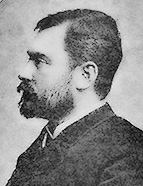

For Oliveira Martins, history functions, in the manner of Hegel, as the theatre where the human spirit reveals itself. It represents the expression of human consciousness but also of the unconscious, which drives heroes through instinct, independent of their will (a concept derived from E. Hartmann). At times, Martins appears contradictory, as noted by various interpreters of his work. However, more significant than cataloguing contradictions is, as observed elsewhere, recognising the coexistence of multiple perspectives (or voices) within his writing, alongside the various scales he employed: national, peninsular, European, and global. A notable example is the complementarity between História da Civilização Ibérica [History of Iberian Civilisation] and História de Portugal [History of Portugal]. Both works integrate a plurality of methods and disciplines (geography, anthropology, economics, political science, psychology, and history). While the former of these works demonstrates a clear scientific and theoretical intentionality aimed at identifying major trends of historical change and collective movements on a peninsular scale, the latter adopts a perspective of national history (Portugal as “a molecule of the Iberian social organism”), employing a narrative method akin to a historical drama that emphasises individual actions and animated collective settings, transitioning from individual behaviour to collective behaviour, and from close-up views to broader perspectives, in the manner of Michelet. In the História de Portugal and Portugal Contemporâneo , Martins incorporates an ethical dimension tied to the old idea of historia magistra vitae while also demonstrating a realist intentionality: “presenting the raw and real truth is the best way to educate” ( História de Portugal , p. XII). Regarding the narrative strategy in História de Portugal , Martins later employed an artistic metaphor that perfectly aligns with the cinematic nature of his historical representation, alternating between individual portraits and ensemble scenes: “a synthetic and dramatic painting of life” (“Advertência” [Preface], A Vida de Nun’Álvares [The Life of Nun’Álvares], 1984 [1893], p.7), and he referred to the “tragicomic episodes” illustrating the pathology of 19th-century Portuguese society in Portugal Contemporâneo (Id., p.9). Nevertheless, in either case, the historian adopted an organicist language in which the analogy between the nation and an individual, organic, and moral being is frequent—one might call it a shared soul or consciousness. Consider the concept of a nation he adopts: “…that association of men which has acquired organic cohesion , traditions, habits, and a shared will or consciousness, whether the founders had or did not have ethnic affinity in its constitution, and whether or not they occupied an appropriate place .” The concept of nationality , on the other hand, refers, in his view, to an “ethnogenic base,” forged by a “tradition of common ancestry” (as in the cases of the Jews or the Roma, who, in his perspective, did not constitute nations) ( Política e economia nacional [Politics and National Economy], pp. 44–45).
This work is financed by national funds through FCT - Foundation for Science and Technology, I.P, in the scope of the projects UIDB/04311/2020 and UIDP/04311/2020.
